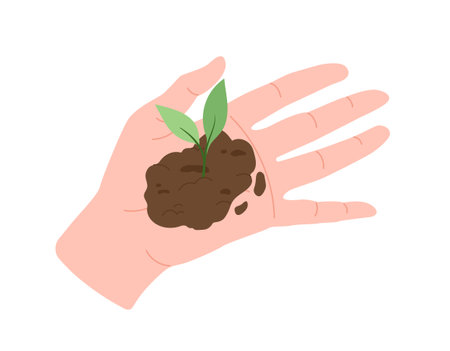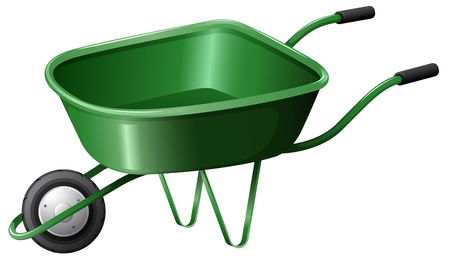1. Introduction to Composting and Its Benefits
Composting is a natural process that turns organic waste—like food scraps, yard trimmings, and leaves—into nutrient-rich soil. For backyard gardeners across the United States, composting is more than just an eco-friendly habit; it’s a smart way to improve soil health, reduce household waste, and contribute to a more sustainable environment. As awareness of environmental issues grows, more American households are choosing to compost right in their backyards.
One of the biggest reasons people start composting is to reduce the amount of waste sent to landfills. According to the U.S. Environmental Protection Agency (EPA), food scraps and yard waste make up over 30% of what we throw away. When these materials go into a landfill, they decompose without oxygen and produce methane—a potent greenhouse gas. Composting at home helps prevent this while creating something useful for your garden.
Backyard composting also offers major benefits for your garden. Compost improves soil structure, helps retain moisture, and provides essential nutrients for plants—all without the need for chemical fertilizers. This means healthier vegetables, brighter flowers, and stronger lawns with less environmental impact.
Why More U.S. Households Are Embracing Composting
There’s a growing movement across the U.S. toward sustainable living, and backyard composting fits right in. Whether youre in a suburban neighborhood or rural area, composting can be adapted to fit your space and lifestyle. With increasing support from local governments—including free compost bins and educational programs—it’s easier than ever to get started.
Main Benefits of Backyard Composting
| Benefit | Description |
|---|---|
| Reduces Waste | Keeps food scraps and yard clippings out of landfills. |
| Lowers Greenhouse Gases | Cuts down on methane emissions from decomposing waste. |
| Improves Soil Health | Adds organic matter that boosts plant growth naturally. |
| Saves Money | Lowers the need for store-bought fertilizers and soil conditioners. |
| Supports Local Ecosystems | Encourages healthy soil microbes, worms, and beneficial insects. |
If you’re a backyard gardener looking to make a positive impact on your garden and the planet, composting is one of the simplest ways to start. But before diving in, its important to understand that composting rules can vary depending on where you live in the U.S.—and thats where knowing the laws and regulations comes in handy.
2. Federal Guidelines and National Policies
Backyard composting might seem like a local activity, but its actually shaped by broader national policies. While most composting laws are set at the state and local levels, there are important federal guidelines that provide a framework for how composting is handled across the country. These national standards mainly come from agencies like the Environmental Protection Agency (EPA), which help guide states in developing their own regulations.
Role of the EPA in Composting
The U.S. Environmental Protection Agency (EPA) plays a key role in promoting sustainable waste management practices, including composting. Although the EPA does not directly regulate backyard composting, it offers guidance and best practices that influence state and local policies. The agency’s main focus areas include:
- Reducing food waste through composting initiatives
- Promoting soil health using organic matter like compost
- Encouraging community education on composting benefits
National Organic Waste Strategies
The federal government supports several initiatives to manage organic waste, aiming to divert it from landfills and into composting systems. These efforts are part of larger sustainability goals to reduce greenhouse gas emissions and improve soil quality.
Key Federal Programs Supporting Composting
| Program/Initiative | Description | Agency Involved |
|---|---|---|
| Food Recovery Challenge (FRC) | Encourages organizations to reduce food waste through prevention, donation, and composting. | EPA |
| Sustainable Materials Management Program (SMM) | A strategy to reduce environmental impacts of materials throughout their lifecycle, including compostable waste. | EPA |
| USDA Composting Pilot Projects | Supports community composting efforts in rural and urban areas with grants and technical assistance. | USDA |
How Federal Policies Influence State and Local Regulations
Federal agencies don’t enforce specific rules for backyard composters, but their guidelines often serve as a model for states when writing their own laws. For example, many state compost programs use EPA recommendations to develop safe handling practices for organic waste. This helps ensure consistency across different regions and encourages more people to adopt eco-friendly habits without worrying about legal issues.
Tip for Gardeners:
If youre starting or expanding a backyard compost system, its helpful to look at your state’s guidelines—but knowing where those rules come from can give you confidence that you’re following sound, science-based practices supported nationwide.

3. State and Local Composting Regulations
While federal guidelines offer general support for composting, most of the specific rules that impact backyard gardeners are set at the state and local levels. These regulations can vary widely depending on where you live in the U.S., so it’s important to check with your local city or county office before starting a compost pile in your yard.
Key Differences Across States and Municipalities
Backyard composting laws can differ in several ways, including what materials you’re allowed to compost, how far your compost bin needs to be from property lines, and how you manage odors. Here’s a quick look at some of these differences:
| State/City | Allowed Materials | Odor Control Requirements | Setback Distance |
|---|---|---|---|
| California (Los Angeles) | No meat or dairy; yard waste and food scraps allowed | Must be managed to prevent nuisance odors | At least 5 feet from property lines |
| Texas (Austin) | Fruit, vegetables, coffee grounds, eggshells; no animal products | Lid required on bins; odor control measures encouraged | No minimum distance specified but must not create a nuisance |
| New York (NYC) | Vegetable scraps only; meat and dairy prohibited | Bins must be covered; complaints may result in removal orders | No official setback rule, but must be on private property |
| Oregon (Portland) | Meat, bones, and dairy allowed in curbside collection only—not backyard bins | Bins must be maintained to prevent pests and smells | Minimum 3 feet from neighboring structures recommended |
| Florida (Miami) | No restrictions on plant-based materials; avoid attracting wildlife with meats or oils | Bins should be aerated and kept dry to reduce odor | At least 10 feet from adjacent properties advised |
Understanding Odor and Pest Control Rules
A common theme across many areas is the need to control odors and pests. Most municipalities require that compost piles be well-maintained—turned regularly, kept moist but not soggy, and properly covered if needed. Some cities even provide free or discounted compost bins that meet their standards.
Why Setback Distances Matter
The idea behind setback distances is to ensure your compost pile doesn’t interfere with your neighbors’ space or comfort. Even if your area doesn’t have an official rule, it’s still a good practice to place your bin away from windows, fences, or shared yards.
Tips for Staying Compliant:
- Check local ordinances: Visit your city or county website or contact their environmental services department.
- Avoid banned items: Most places prohibit meat, dairy, and oily foods because they attract pests.
- Use proper containers: Enclosed bins help manage odor and keep animals out.
- Respect neighbors: Keep your compost tidy and odor-free to avoid complaints.
If youre just getting started with backyard composting, understanding these local regulations can save you time—and possibly fines—down the road. Always do a quick check with local authorities to make sure youre following the rules in your area.
4. HOA, Zoning, and Community Rules Impacting Backyard Composting
If youre thinking about starting a compost pile in your backyard, its important to know that local rules can impact what you can and cant do—even on your own property. These rules often come from homeowners associations (HOAs), city or county zoning ordinances, and neighborhood covenants. Lets break down how each of these might affect your composting setup.
Homeowners Associations (HOAs)
Many neighborhoods across the U.S. are governed by HOAs, which often have strict rules to maintain community standards. These rules may restrict or regulate backyard composting based on appearance, odor concerns, or pest control.
Common HOA Restrictions Include:
| Restriction Type | Description |
|---|---|
| Location Limits | You may be required to place compost bins in hidden or non-visible areas of your yard. |
| Bin Type Regulations | Some HOAs only allow enclosed compost bins to prevent odors and pests. |
| Size Limits | Your compost pile or bin might need to stay within a certain size range. |
| Aesthetic Requirements | Bins may need to match the home’s exterior style or be screened from view. |
Zoning Ordinances
Local governments use zoning laws to regulate land use. These ordinances may limit composting activities, especially in densely populated urban areas where space is limited or where theres concern about public health and safety.
Examples of Zoning-Related Composting Rules:
- Setback Requirements: You might need to place your compost bin a certain distance away from property lines or structures.
- Material Restrictions: Some cities prohibit meat, dairy, or animal waste in residential compost systems.
- Pest Control Measures: You could be required to use rodent-proof bins or secure lids.
Neighborhood Covenants and Deed Restrictions
Apart from formal HOAs, some communities have covenants written into property deeds that govern land use. These rules can also influence your ability to compost at home—even if you don’t live in an HOA-managed neighborhood.
Tips for Navigating Local Rules:
- Check Your HOA Documents: Review your community’s bylaws and guidelines before setting up a compost system.
- Contact Local Zoning Office: Reach out to city or county officials to understand any applicable regulations.
- Talk to Your Neighbors: Open communication can help avoid complaints and encourage shared sustainability efforts.
Understanding how local governance affects backyard composting can save you time and frustration. Always check first before you build your compost pile—it helps keep peace in the neighborhood and ensures youre following the law.
5. Composting Dos and Donts: Staying Compliant
If youre composting in your backyard, its important to follow local and state regulations. Many U.S. cities and counties have specific rules to prevent pests, odors, and environmental issues. Here are some best practices to help you stay compliant and avoid fines or neighbor complaints.
✅ What You Should Do
- Use Approved Materials: Stick to compostable items like fruit and vegetable scraps, coffee grounds, eggshells, grass clippings, and dry leaves.
- Maintain Your Pile: Turn your compost regularly to aerate it and control odor. A well-maintained pile decomposes faster and smells less.
- Keep It Covered: Use a lid or cover with a tarp to prevent rainwater from making the pile soggy, which can cause bad smells and attract pests.
- Monitor Size: Some municipalities limit the size of backyard compost bins or piles—typically 3x3x3 feet is acceptable in most areas.
- Check Local Rules: Always verify your city or countys composting regulations. Some areas require enclosed bins or have setback requirements from property lines.
🚫 What You Should Avoid
- No Meat or Dairy: These can attract rodents and create strong odors. Most local ordinances prohibit these in backyard composting.
- No Pet Waste: Dog and cat feces may contain harmful pathogens and are usually not allowed.
- No Glossy Paper or Plastic: These don’t break down properly and may release toxins into your compost.
- Avoid Neglecting It: Letting your pile sit without turning or adding balanced materials (greens and browns) may result in complaints about smell or appearance.
Quick Guide: Compostable vs. Non-Compostable Items
| Compostable | Not Compostable |
|---|---|
| Fruit & veggie scraps | Dairy products |
| Coffee grounds & filters | Meat, bones, fish |
| Lawn clippings & dry leaves | Synthetic fabrics |
| Sawdust (untreated wood) | Pesticide-treated plants |
Troubleshooting Tips to Stay Out of Trouble
- If you notice strong odors, add more brown materials like shredded newspaper or dry leaves.
- If pests become an issue, check for exposed food waste—bury food scraps deeper inside the pile or use a sealed bin.
The key to legal composting is keeping your system clean, controlled, and respectful of neighbors space. When in doubt, contact your local extension office or city waste department for guidance on approved methods in your area.
6. Resources and Advocacy for Home Composters
If youre composting at home or thinking about starting, youre not alone—and you dont have to go it alone either. Across the U.S., a variety of helpful tools, government programs, and nonprofit organizations are here to support your eco-friendly efforts. Whether youre looking for how-to guides, legal advice, or local regulations, these resources can help you stay compliant while making a positive impact on the environment.
Helpful Tools and Apps for Backyard Composters
Technology can make composting easier than ever. From smartphone apps to printable guides, here are some popular tools that can assist with your home composting journey:
| Tool/App | Description | Where to Find It |
|---|---|---|
| ShareWaste | Connects people who compost with those who want to donate food scraps. | sharewaste.com |
| Compost Coach App | Offers guidance on what to compost and how to maintain a healthy pile. | Available on iOS and Android app stores |
| EPA Food Recovery Hierarchy | A visual guide from the U.S. Environmental Protection Agency on reducing food waste. | epa.gov |
Government Resources and Guidelines
Several federal and state agencies provide resources tailored for backyard composters. These websites offer legal guidelines, educational material, and even funding opportunities for sustainable practices:
- U.S. Environmental Protection Agency (EPA): Offers detailed information about composting at home, including safety tips and environmental benefits. Visit: epa.gov/recycle/composting-home
- Your State’s Department of Environmental Quality (DEQ): Each state has its own rules—check your local DEQ website for region-specific composting laws.
- Local Cooperative Extension Services: Run by universities across the U.S., these programs provide free workshops and advice on home gardening and composting.
Organizations Supporting Home Composters
If youre looking for community support or want to get involved in compost advocacy, these organizations are great places to start:
- Institute for Local Self-Reliance (ILSR): Their Composting for Community initiative promotes decentralized, small-scale composting. Learn more at: ilsr.org/composting/
- The U.S. Composting Council (USCC): Offers certifications, training programs, and updates on national compost policy. Visit: compostingcouncil.org
- Master Composter Programs: Found in many states, these volunteer-led education programs teach best practices for home composters and help spread awareness in local communities.
Pro Tip:
Check if your city offers free compost bins or starter kits. Many municipalities have sustainability programs that encourage residents to reduce waste through home composting.
Stay Informed and Connected
Laws around composting can vary widely depending on where you live. Subscribing to newsletters from the EPA or joining local gardening Facebook groups can keep you updated on changes in regulations or new resources available in your area.
No matter where you’re starting from, there’s support out there to help you become a successful—and law-abiding—home composter.


